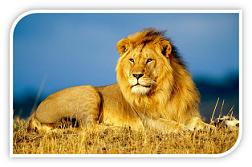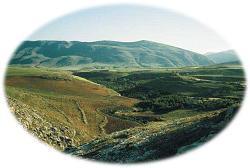Bible Studies on Jacob: Lesson 18 Jacob Tells His Sons About the Future
Bible Studies on Jacob: Lesson 18 Jacob Tells His Sons About the Future
Read Genesis 47:29-31 and Genesis 49
Introduction: his "last will and testament" (49:1)⤒🔗
Jacob has spoken with Joseph and his sons about God's blessing upon them. Now he blesses all his sons. Genesis 49 contains the longest poetic portion of this book (verses 2-27). This is often called "the blessing of Jacob" to his sons. Blessings in Scripture are also pregnant with the future. Jacob tells his sons to gather around so that he might tell them "what will happen" to them. The patriarch becomes a prophet, foreseeing the future by inspiration. But it is more than just the future. He also is judging his sons, that is, he evaluates their lives and speaks of where that will take matters in the future with respect to the tribes that will descend from them. As you read through Jacob's statements about his sons, it might be helpful to be looking at a map (in the back of most Bibles) of how the tribes were settled in Canaan.
My first three sons (49:2-7)←⤒🔗
 Leah bore four sons to Jacob initially: Reuben, Simeon, Levi, and Judah. Jacob speaks about them first, of course. Normally, the firstborn son was supposed to walk off with the double portion of blessing. That is what Reuben should have received, but he sinned against his father by becoming intimate with Bilhah, Rachel's maidservant (see Gen. 35:22). This was a sin against the 5th and 7th commandments. Such earlier sin now leads to this result. Sin had discredited him, and now he is disinherited as the firstborn. From later history, we never read of any king emerging from the tribe of Reuben. No prophet and no priest arise within the ranks of this tribe. On the contrary, in Numbers 16 we read about the revolt of Korah, Dathan, and Abiram – the last two men from the tribe of Reuben. They called into question the leadership of Moses, and the Lord punished them with death and destruction. "Turbulent as the waters, you will not excel," says Jacob about his firstborn son. And that is what happened. Reuben received his tribal land in the region east of the Dead Sea.
Leah bore four sons to Jacob initially: Reuben, Simeon, Levi, and Judah. Jacob speaks about them first, of course. Normally, the firstborn son was supposed to walk off with the double portion of blessing. That is what Reuben should have received, but he sinned against his father by becoming intimate with Bilhah, Rachel's maidservant (see Gen. 35:22). This was a sin against the 5th and 7th commandments. Such earlier sin now leads to this result. Sin had discredited him, and now he is disinherited as the firstborn. From later history, we never read of any king emerging from the tribe of Reuben. No prophet and no priest arise within the ranks of this tribe. On the contrary, in Numbers 16 we read about the revolt of Korah, Dathan, and Abiram – the last two men from the tribe of Reuben. They called into question the leadership of Moses, and the Lord punished them with death and destruction. "Turbulent as the waters, you will not excel," says Jacob about his firstborn son. And that is what happened. Reuben received his tribal land in the region east of the Dead Sea.
Jacob speaks of Simeon and Levi together. These two brothers banded together at the time of Dinah's violation by Shechem in Genesis 34. They hatched the plot that led to the massacre of the people of Shechem, something that had put Jacob in a very precarious position with the people of that region. Jacob recalls this about them, speaking about their "weapons of violence … they killed men in their anger." In fact Jacob curses their fierce anger and their cruel fury. Not much blessing here! His words are words of judgment. In the parallel lines in verse 7 Jacob says that these brothers (i.e., the tribes) will be "dispersed" in Israel.
And so it was… but in strangely different ways! It is a young man from Simeon (Num. 25:14) who boldly sins by bringing a Midianite young woman into his tent when God punished Israel during the Baal-Peor incident. Simeon is not even mentioned in Moses' blessing in Deuteronomy 33. Simeon receives land in the Promised Land, but it is in the dry southern portion of Canaan, and it is within the territory boundaries of the larger tribe of Judah. In other words, the dispersion of Simeon has them basically absorbed into another tribe.
Levi is also dispersed in Israel, but in a good way. It is the tribe of Levi that rallies to Moses' side at the sinful incident of the golden calf (see Exodus 32). Because of that loyalty to the LORD and His cause, God "ordains" this tribe to be the priestly tribe that serves at the holy sanctuary of the LORD. Those Levites who do not serve at the sanctuary itself would be permitted to live throughout Israel in its towns and villages (see Num. 35:2, 7; Joshua 14:4; 21:41). It is a Levite, Phinehas, who takes a spear and boldly goes to impale the sinful Simeonite young man in the Baal-Peor incident mentioned above (see Num. 25:1ff, and God blesses that zeal. So both Simeon and Levi are "dispersed" as Jacob says, but in strangely different ways.
Judah: a lion, a scepter, and a donkey (49:8-12)←⤒🔗
 Jacob's first three sons have "taken themselves out of the running," so to speak, by their sins of fornication and great violence. So now the patriarch sees into the future about Judah. Clearly he notes that this will be the royal tribe. Joseph may have authority over his brothers for the moment as they bow to him as ruler in Egypt. But the time will come when Judah's brothers will bow down to him. Jacob calls him a "lion's cub" (the lion as "king" of the beasts). He mentions a scepter and ruler's staff as staying with Judah "until he comes to whom it belongs" (pointing ahead to David and great David's greater Son, Jesus Christ). Rich imagery of a donkey tied to a vine fill out a picture of royalty and prosperity. Judah would occupy the southern hill country as a great and powerful tribe.
Jacob's first three sons have "taken themselves out of the running," so to speak, by their sins of fornication and great violence. So now the patriarch sees into the future about Judah. Clearly he notes that this will be the royal tribe. Joseph may have authority over his brothers for the moment as they bow to him as ruler in Egypt. But the time will come when Judah's brothers will bow down to him. Jacob calls him a "lion's cub" (the lion as "king" of the beasts). He mentions a scepter and ruler's staff as staying with Judah "until he comes to whom it belongs" (pointing ahead to David and great David's greater Son, Jesus Christ). Rich imagery of a donkey tied to a vine fill out a picture of royalty and prosperity. Judah would occupy the southern hill country as a great and powerful tribe.
Zebulun and Issachar: in good land (49:13-15)←⤒🔗
These two tribes occupied parts of the Galilee in the northern part of the Promised Land. Zebulun, technically not on the Mediterranean Sea, was close to the sea. Both tribes received land that was fertile. Plus, the men of Issachar became known for their spiritual insight, for they knew the times.
Dan: a serpent (49:16-18)←⤒🔗
The name "Dan" comes from a word that speaks of justice or judging. "Dan will provide justice for his people," says Jacob. From Dan would come the great judge Samson (Judges 13-16), but this tribe would also, in part, desert its tribal inheritance in order to migrate to northern Israel where it would cruelly attack a peaceful city and rename it … Dan! Danites would also engage in false worship, yielding to the wickedness of the great Serpent, Satan. "I look for Your deliverance, O LORD!" It is interesting to note that in the tribal roll call of Revelation 7:4-8, the tribe of Dan is not even mentioned.
Gad, Asher, and Naphtali (49:19-21)←⤒🔗
Gad received his tribal land to the east of the Jordan River, sandwiched between Reuben to the south and half of Manasseh to the north. But this area would be vulnerable to attack by the Moabites from the south and by the Ammonites to the east.
Asher and Naphtali received their tribal land in the north, in the Galilee region as well as along the coast of the Mediterranean Sea. The land was fertile and rich, but that made it a desirable fruit to pluck on the part of foreign enemies. These tribes would not be able to drive out the Canaanites later on, and these tribes would be some of the first to be carried away by the Assyrians.
Joseph the vine and Benjamin the wolf (49:22-27)←⤒🔗
Jacob comes to the "Rachel tribes" last. Certainly the longest comments are reserved for Joseph (sons Ephraim and Manasseh). Genesis 48 revealed that Jacob moved Joseph's two sons to the level of tribal patriarchs. These two tribes would become powerful and influential as Ephraim ("fruitful") would settle in the central hill country of the Promised Land, and Manasseh would live on both sides of the Jordan River. Joshua would come from Ephraim, and this central tribe would be the last part of northern Israel that would go into exile to Assyria (722 BC).
At least two main points stand out in the blessing to Joseph. First, a complete picture of blessing is drawn in the words of Jacob. Do you hear these words: "fruitful vine … strong arms … blessings of the heavens … of the deep … of breast and womb"? Jacob had wondered in Genesis 37 concerning Joseph's dreams about the family having to bow down to Joseph. But now he acknowledges that the young son Joseph had become a "prince among his brothers" (verse 26). Second, Jacob gives God all the credit for this great blessing. It is all because of the "hand of the Mighty One … because of the Shepherd, the Rock of Israel…" In other words, "Praise God from whom all blessings flow!" So true for Joseph, but it remains absolutely true for all Christians today as well. "All things are yours," says the New Testament, and "you are Christ's, and Christ is God's."
The youngest son Benjamin (a "ravenous wolf") produced a tribe that became known for its excellent warriors. Ehud from Benjamin was a left-handed judge who killed the Moabite tyrant Eglon and led Israel to victory. Saul, Israel's first king, would come from Gibeah of Benjamin. But also during the time of the judges, civil war would nearly annihilate the tribe of Benjamin, a tragic story told in Judges 19-21. But from this tribe would later come another Saul in the book of Acts, a proud Pharisee who would be stopped by Jesus Christ and then transformed into the great Christian missionary of the New Testament, Paul.
Jacob gives instructions for his burial (49:29-32)←⤒🔗
Jacob ends his days in the peace of knowing that Joseph was alive and that his large clan was living in peace and prosperity in the land of Goshen. Yet Jacob does not want his body to be buried in the Egyptian sand or in a royal pyramid or any other Egyptian final resting place. Egypt is not "home," no matter how "nice" it may be. In faith, he knows that the Promised Land is the place where "my people" are, he tells us (verse 29). He knows the address of his burial cave in Canaan. Abraham and Sarah, Isaac and Rebekah, as well as first wife Leah ("my people") are there. That, and nowhere else, is where Jacob insists on being buried. This is something that Jacob earlier had made Joseph solemnly swear, according to Genesis 47:29-31. Once this was promised, Jacob could worship "by faith … leaning on the top of his staff" (Hebr. 11:21b). His heart was not in Egypt; he looked ahead to what God had promised him.
Jacob is "gathered to his people" (49:33)←⤒🔗
 The Bible tells us about Jacob's birth. He emerged from the womb with his small infant hand grasping his brother's heel. And now the Bible also tells us of his departure from this life: he "drew up his feet up into the bed, breathed his last and was gathered to his people." What a simple and beautiful description of the end of the life of this patriarch! The NIV Bible uses this as the heading above verse 29: "The Death of Jacob" – which is true – but the word "death" (both the verb and the noun) are not used in Genesis 49 to describe Jacob's departure. "Death" and "die" are used in chapters 48 and 50 but not here in this chapter. The last words from Jacob to his sons focus on his burial in the plot that had been purchased from the Hittites many years before.
The Bible tells us about Jacob's birth. He emerged from the womb with his small infant hand grasping his brother's heel. And now the Bible also tells us of his departure from this life: he "drew up his feet up into the bed, breathed his last and was gathered to his people." What a simple and beautiful description of the end of the life of this patriarch! The NIV Bible uses this as the heading above verse 29: "The Death of Jacob" – which is true – but the word "death" (both the verb and the noun) are not used in Genesis 49 to describe Jacob's departure. "Death" and "die" are used in chapters 48 and 50 but not here in this chapter. The last words from Jacob to his sons focus on his burial in the plot that had been purchased from the Hittites many years before.
When Jacob dies, Egypt mourns for him. But he is buried in the Promised Land, in the hope of his glorious resurrection. Still, in dying Jacob truly goes "to be with his people," for our God is the God of Abraham, Isaac, and Jacob. He is the God of the living, not of the dead. More than that, our Triune God is the God who elects His own, before we have done anything good or evil in this world, and then He works steadily, for however long it may take, to wrestle us sinners down, to test and tame us, to put us "through many danger, toils, and snares," so that we might live by faith, and that we might die in His grace, always admitting that we are aliens and strangers in this earth (see Hebr. 11:13-16).
May we see in the life of Jacob how God's amazing grace elects and then protects, guides and guards His own to the close of their lives. "Surely goodness and love will follow me all the days of my life, and I will dwell in the house of the LORD forever" (Ps. 23:6).
Lesson 18: Points to ponder and discuss←⤒🔗
- We do not know the day and hour when a loved one will leave this life. We do not dwell morbidly on this fact. Still, since this is the case that we do not know about their departure (should the Lord tarry), have you considered what must be said and done to those you know and love before that time comes? What do you need to say and do, especially with your loved ones, before the Lord calls you out of this life?
- Jacob blesses these sons. Think back on the kinds of men they have shown themselves to be (the massacre at Shechem, selling their own brother Joseph, deceiving their father, etc.). Were they deserving of their father's blessing? How is Jacob both just and merciful in these final dealings with his sons? Does this parallel in some ways how the Lord God deals with us?
- Read Luke 2:36-38. When Jesus was born, an old prophetess named Anna (Hannah), a descendant of the tribe of Asher, was present in the Temple. She went about speaking of the "redemption of Jerusalem" that had been born. As a tribe, Asher was taken away into captivity. Yet in Luke 2 there is a remnant present, saved by grace. How does this show the amazing grace of God, even centuries after the exile?
- The tribe of Benjamin produced Saul, the first king, who persecuted David and tried to kill him. Later, another man of Benjamin, the Pharisee Saul, persecuted the Son of David, Jesus Christ. Read Acts 9:1-19, the conversion of Saul (later called Paul). How are those stories similar, and how are they different? Note how God rejected King Saul in the end, but He selected Paul to be His great apostle.
- Jacob insists on having his body buried in Canaan, the Promised Land. Does it matter today where our bodies are to be buried? What and where is the "promised land" for us? What is the future for Christians, personally and corporately, in the age to come?
- "To whom much is given, much is required." When Jacob purchased the birthright from Esau, what covenantal responsibilities now became his? Could he have had any idea how God would lead his life from that point on? Could we have expected from Jacob the kind of speeches that he gives in Genesis 48 and 49, back in Genesis 25 and 27, earlier in his life? Grace elects and also sanctifies.

Add new comment